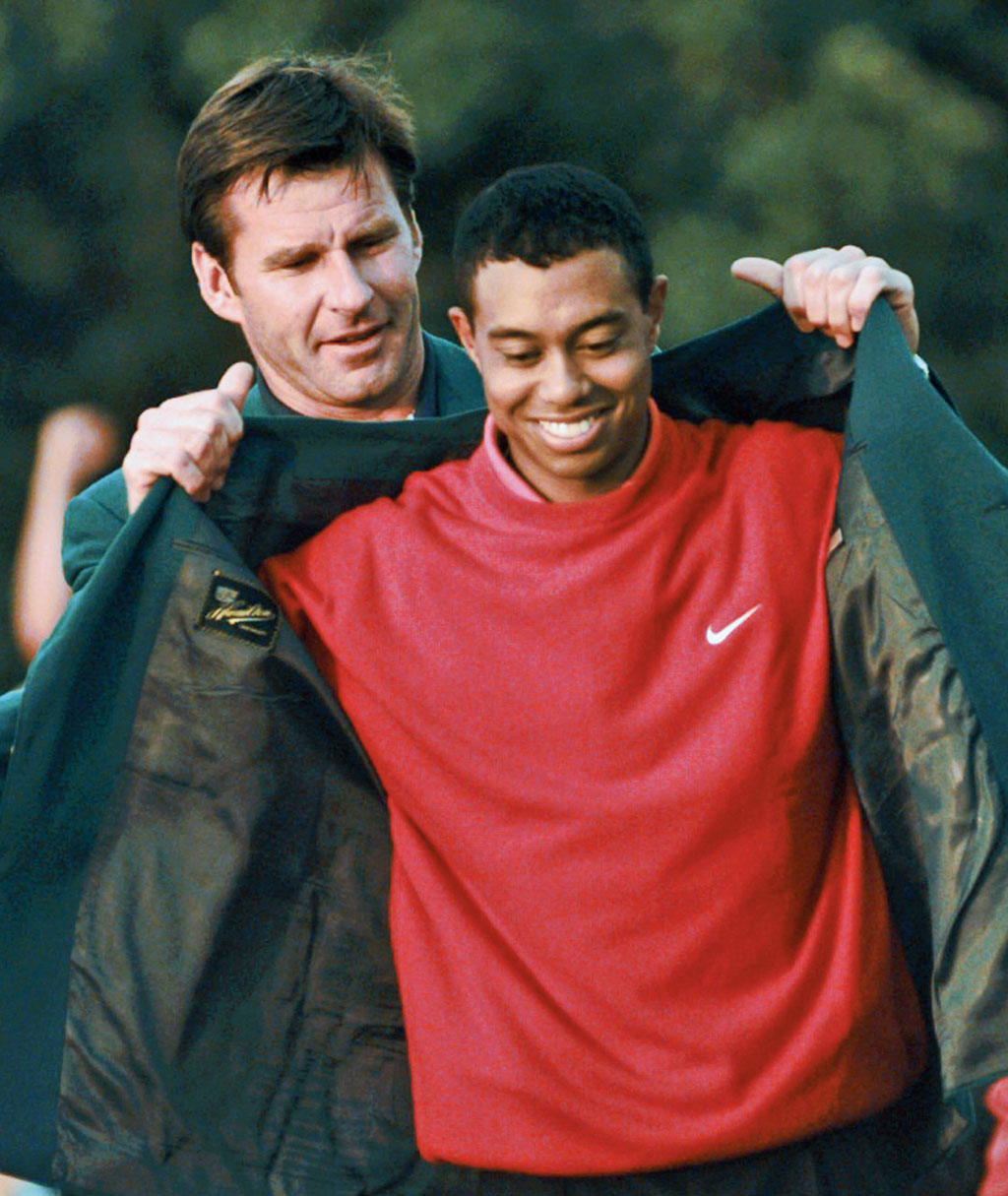The year was 1997 and the month was April. It was that time of year when the Augusta Golf course hosts the Masters. But unlike the previous 60 editions, that one turned out to be a special one.
A 21-year-old Tiger Woods roared into global consciousness playing golf like was never seen before.
His aggregate score of 270 (-18) was a Masters record till 2015 when another American golfer Jordan Spieth equalled it. Twentythree years back, on April 13, Woods — he didn’t have a good first nine holes on the opening day but recovered well to score 70, 65, 66 in the three rounds — shot three-under 69 on the final day to become the youngest Masters champion. Spieth in 2015 was also 21 but the 12-stroke victory is still a tournament record.
“Historic”, screamed the Augusta Chronicle. Below it was probably the most apt statement. “Tiger launches new era.”
That win changed the dynamics of golf worldwide. From the old man’s game, it became a sport where skill, fitness and power decided the winner. “The 1997 Augusta changed everything in golf. For example, till then we did not know how big a role fitness could play in golf. Tiger showed us that unless and until you spend time at the gym, you have no chance to survive on the fairways.
“Even from the edge of the roughs, he used to generate so much power. It was unbelievable. His confidence instilled a fear factor amongst the rivals. And that confidence came from the immense power he generated for his shots. To me, Augusta National was the watershed in golfing history,” seasoned pro Jeev Milkha Singh told The Telegraph from Chandigarh.
Woods was also the first ‘black’ to win a Major. In golf, traditions mean everything and so the fact that Woods was not part of ruling class was one of the biggest moments in Augusta.
“It had a huge socio-political impact there back then. The Augusta, with all the Black staff and yet not a single member from the community, had a winner who was not ‘white’.
“Worldwide, maybe, everyone got swayed by Woods crisscrossing the world on a private jet and the endorsement deals he signed post April 13, but in Augusta it had a political overtone,” said Gaurav Ghei, who was first Indian to qualify for the last Major of that year, the British Open, held at the Royal Troon.
The impact Tiger had on the world, especially in South Asia, was on a par with what Muhammad Ali, or Pele, or a modern-day great like Diego Maradona had. “I would say his impact was bigger than everyone else. If Arnold Palmer is credited for making golf popular, Tiger went a step ahead. Because of him, golf is what it is today. See, football or boxing were always there. But when a taxi driver in Dhaka tells you ‘I know about Tiger Woods’ then you can understand what that man has achieved,” Jeev said.
Calcutta pro and coach Indrajit Bhalotia though drew a different parallel. “I would say it’s more like what 1983 World Cup win had on cricket in India. Tiger’s ascent brought in sponsorships, higher television ratings and spectators started thronging the courses wherever he played. No other golfer can ever match what he brought in to the game,” Bhalotia said.
SSP Chowrasia turned pro the same year Tiger became a worldwide phenomenon. “Oh! 23 years have gone by? I had just turned pro that year. I was very amazed when someone told me that a 21-year-old won the Masters. How can someone so young win a Major? What stood out was the power with which he used tee off. That gave him a headstart and after that, others were left to play the catching up game on that hole,” Chowrasia said.
Personal problems and injuries had bogged down Woods, but he roared back with another Masters triumph — his fifth — last year. The Covid-19 has put on hold Woods’ plan to defend the title.
At 44 he is not getting younger and if normalcy doesn’t return soon, Woods may find it difficult to win his 16th Major.
But April 13 is all about his first.










